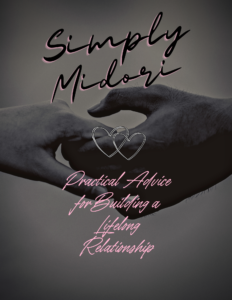Trauma Bond In Relationships- Decide If You’re In One
How do you know if you have a trauma bond? Take the trauma bonding test
Please answer the following questions honestly, taking the time to think about the truth of your situation before you answer them. You may be in the undeniably tight grasp of a suffocating trauma bond if you exhibit the following behaviors or thoughts:
-
You know that your partner or ex is abusive and purposely manipulative, but you can’t seem to be able to let go of them.
-
You give a lot of thought and rumination to the many incidents of abuse you’ve endured, you engage in bouts of self-blame, and the abuser is the negotiator of your self-esteem and self-worth.
-
Despite the pain and hurt they make you feel, letting go isn’t something you feel capable of.
-
You often walk on eggshells to try to appease or please your abuser.
-
Although they give you very little in return (apart from perhaps a few crumbs of affection), you find tiptoeing around them is something you must do to keep the peace in your search for normality.
-
You feel like you’re addicted to them.
-
You seek their validation and approval, and you feel like you need this from them, as it is a source of comfort for you.
-
Their approval is a shelter of comfort, particularly after incidents of abuse. (This indicates a strong psychological attachment to the abuser).
-
You find that you defend your abuser no matter what they do and keep their wicked, hurtful side a secret from others.
-
You have been in a tough situation where you’ve refused to press charges against your abuser or defended them against those who tried to tell you they’re toxic.
-
In all likelihood, you perhaps even present your relationship as a happy, loving one to your peers and family, attempting to minimize their abusive tendencies.
-
You may also find that you occasionally exaggerate any positive behaviors they offer to show your abuser in a favorable light.
-
Should you attempt to leave the abuser, you find that you always give in to the abuser’s fake remorse, their pitiful crocodile tears, and their promises to change in the future.
-
Despite the pattern of abuse and its toxic cycle being clearly evident, you grasp onto the misplaced hope that things can get better.
-
You may have developed some self-sabotaging behaviors and could engage in some form of self-harm to dissociate yourself from the pain of the abuse.
-
You may also find that you’re prone to engaging in other self-sabotaging behaviors, such as heavy drinking or taking drugs; this is often to mask the profound sense of shame caused by the abuse.
-
You are fully prepared to lower your standards for this cruel, toxic person, accepting what you previously considered unacceptable or a deal breaker. (This happens time after time, and you may find that as the abuse continues, you accept more horrific and damaging abuse each time).
-
You change your behavior and personality to meet the abuser’s ever-moving goalposts, even though the abuser rarely (if ever) changes their behavior to please you.
Did some of these resonate with you?
Recommended Reading: The 7 Stages Of A Toxic RelationshipDid you read these and find that you could apply them to your situation or that some of my descriptions parallel your circumstances?
If the answer is yes to any of these, then it’s likely you’re in the tightly wound grip of an abusive relationship, bound to your abuser by a toxic trauma bond.
Why Accepting The Fact That You Are In A Trauma Bond Is Hard?
It can be hard to accept that you’re in an abusive relationship, let alone the fact that you’re traumatically bonded to this person. For a period, I shunned the idea I was in a trauma bonding relationship. Instead, I chose to believe I was pursuing the chance of happiness that I had with my abuser (although I didn’t refer to him as an ‘abuser’ at the time).
Like most women, I believed I was fighting for authentic, genuine love and that obtaining happiness wasn’t easy, or everyone would have it. Enduring his abusive behavior was just testing my commitment to this person, I thought. Looking back on myself then, I can see I was merely making excuses for staying in such a toxic, nasty, hurtful, soul-crushing relationship.
I didn’t want to face the truth that I was being abused, nor did I ever want to believe that I was attached to my abuser so deeply that I would endure any pain to be with him.
So, instead, I maintained my stance that I was with him because I loved him, and in his way, he loved me back. Confusing genuine love and the trauma bond is incredibly easy to do.
Lines get blurred beyond comprehension, particularly when you’re in a foggy state of mind due to being treated so despicably. If you connected with any of the scenarios I mentioned, then I think this blog series can be useful to you.
It’ll help you understand what a trauma bond is, focusing on the bond that is developed when you’re in an emotionally abusive, narcissistic relationship.
Click here to learn how a trauma bond develops and eventually wraps around your entire being. More than this, I want to offer some advice on how you can go about breaking this toxic bond.
I understand that just because you’re reading this doesn’t mean you’re ready to leave your abusive relationship yet. But having the tools you need already embedded into your mind is a helpful asset when you do want to sever ties with your abuser.
You may have already left your abuser but are still struggling with the trauma bond.
The invisible cord that ties you to them isn’t so easily cut, and simply leaving the relationship isn’t always enough to snip that malignant thread that’s tethered to you.
If this is your situation, then this blog series can help you better understand why it’s so difficult to let go and offer you some ‘survival’ tips on your journey to recovering from a trauma bond.
Recommended Reading: Learning Self CompassionWhat does a trauma bond with a narcissist look like?
When talking to victims of narcissistic abuse and the subsequent trauma bond, I often hear about the survivor experiencing mixed feelings for their partner, who behaves so abusively. I can resonate with this – it’s like a mental game of tug of war.
The abuser completely has your heart in their grasp, but it appears there’s always a little shred of logic and rationale that they didn’t manage to capture. This glimmer of reason tries to fight against the trauma bond and creates an internal war of heart versus head.
Of course, we both know which one wins most of the time. It’s entirely valid and normal to still feel love and care for someone you’ve invested so much of your emotions into. As you can likely agree, it wasn’t the abusive behavior and hurtful words and actions that ignited your attraction to your abuser, to begin with; if that was the case, very few, if any, would end up abusive relationships.
The reality is abusive relationships never start out as cruel as they turn into. Being told you’re worthless, stupid, or never going to meet anyone else probably doesn’t stir up feelings of love and adoration.
But, even after the nasty and abusive behaviors rear their ugly head, most of us believe that leaning towards these nurturing feelings of love, compassion, and care will help us cope with verbal abuse or frightening violence.
That being said, we also know that abusive behaviors don’t remain stagnant; they tend to escalate over time. So, using these emotions and thoughts as coping mechanisms can have damaging impacts on us in the long term. But, as I mentioned before, logic isn’t something that tends to win in the battle of heart versus head.
Many survivors of trauma bonds who have opened up to me also tell me that their abusive spouse exhibited ‘good’ or ‘nice’ behaviors, too. Many of these trauma bond survivors have commented that their partners were (or are) ‘perfect’ more often than not. They stated that it’s just a small percentage of the time that they’re abusive, violent, or problematic.
No matter the frequency, be it every day or monthly – everyone I know wakes up with a sick feeling in the pit of their stomach, unsure as to how the day will pan out. Will they be abused today? Will they be screamed at, told they’re pathetic, will they be berated for not doing something to their abuser’s liking?
When this toxic behavior happens, it completely throws their entire being off-kilter. Either way, a toxic trauma bond can be formed, and regardless of the frequency of abuse, it’s just as hard to handle.
For me, the abuse felt like a constant stream of toxicity. It was a never-ending barrage of manipulation and feeling undeserving of my existence. Through this horrible toxic fog, I would sometimes get glimmers of the man I met.
The funny one, the loving one, the one who made me happy. Though these instances were few and far between, and I craved them so much, they were actually part of a calculated plan on his part.
What I’ve learned through the course of educating myself on trauma bonds and narcissistic abuse and their effects is that the positive behaviors offered by the narcissist enable the abusive behaviors to continue and eventually escalate.
What is the science behind a trauma bond?
The bonds we develop in life originate from our infantile dependence on someone else for our survival, who is usually our primary caregiver. This is often our parent or guardian.
Survival is the structure on which we build human attachment. So, when our safety is threatened by trauma and emotional danger, we naturally turn to someone who is seen as the caregiver in our lives, someone who offers support and love and provides us with care.
When this type of bonding occurs, a hormone called oxytocin is released into our brains, promoting a sense of comfort, safety, and attachment with the caregiver.
Related Reading: How Childhood Trauma Changes Our Development
This carries on and develops in adult relationships, where the ‘caregiver’ goes from being a parent to our partner – or abuser, in some cases. Hopefully, this stripped-down science lesson can help you see how trauma bonds occur – when the person who we regard as our significant other, or the ‘caregiver,’ is also the one creating our trauma by threatening our safety through their abusive behavior towards us.
Why are trauma bonds so hard to break?
We are all essentially wired from the minute we are born to turn towards an attachment figure, particularly when we feel under threat. This need for protection doesn’t go away as we get older, but the person we turn to for security changes.
We instinctively turn to our spouse for comfort when abuse occurs, despite the fact that they are the one who is being abusive to us. This then creates a toxic bond. As humans, we tend to try to make sense of our experiences, so we work exceptionally hard to rationalize the disharmony between our abusive partner’s caring behavior and their abusive behavior towards us.
To add to all that, abusive partners will often promise to change and will manipulatively tend to the very wounds and scars they created, exactly at the moments when we are most vulnerable and exposed.
For example, most abusers make sure all contact with family and friends is severed, leaving you alone and incredibly isolated. This isolation would then mean you are dependent upon your spouse for human interaction and would reach out to him when feeling most alone.
Sometimes, the narcissist can be a great source of comfort for your feelings of isolation despite them being the reason that you are so secluded from everything and everyone.
The narcissist can also be the reason for the great insecurities we have, such as making you feel inferior to other women, or like you are too stupid to apply for different job roles.
In the same breath, however, the narcissist can be the place of comfort over these depressing insecurities and fears, not accepting they are the reason these manifested originally.
It is no wonder we end up feeling so strongly connected to them and have a challenging time imagining life without them. This then spawns a new hurdle to overcome: the dangers of being exposed to the abuse and the tightening of the trauma bond.
The Danger of A Trauma Bond
The danger of traumatic bonding lies in the horrific and long-lasting impact that repeated emotional trauma has on us. Whilst some effects are more glaring and recognizable, such as bruises or marks from physical abuse, others may be less noticeable.
Either way, the more abuse we face, the deeper the bond tends to set within us. The deeper the bond, the more we are entangled in the abuser’s clutches, leaving us with a feeling of hopelessness.
One common side effect of experiencing abusive behavior is the overproduction of cortisol. You may know all too well about the effects of this stress-related hormone, which is nature’s very own built-in alarm.
Cortisol is normally released to provide us with much-needed energy when we’re faced with difficult situations, but too much cortisol can end up damaging our immune system and make us more likely to pick up an illness, become more anxious, and can also create high blood pressure.
Abusive relationships typically make us ill.
From always having a common cold to aches and pains in muscles to constant headaches, this all boils down to the abuse endured. At the time, most of us think being ‘sickly’ is just part of life’s circumstances. However, once you leave, if you haven’t, you will see that one day all the aches and pains are gone.
Overall, many other health concerns can result from enduring abuse. From physical ailments like asthma and fibromyalgia to mental and emotional afflictions such as traumatic flashbacks and depression, being exposed to repeated trauma can impact our health in ways we don’t always piece together.
Conclusion
I hope this has helped you understand the trauma bond a bit more and offered an explanation as to why you, I, or anyone else for that matter, would stay in an un-healthy relationship.
Trauma bonds, as I’ve mentioned, are greater than logic. Unfortunately, trauma bonding is also more complex than most people can comprehend (or want to try to understand), making you feel incredibly alone and powerless to do anything about it.
Hopefully, knowing I’ve been there myself, as have many other survivors, can help you feel alleviated of at least some feelings of confusion you may have.
With that in mind, I recommend this article, which explains the stages that lead to trauma bonding, which will give you a further understanding of your emotions towards your abuser.












